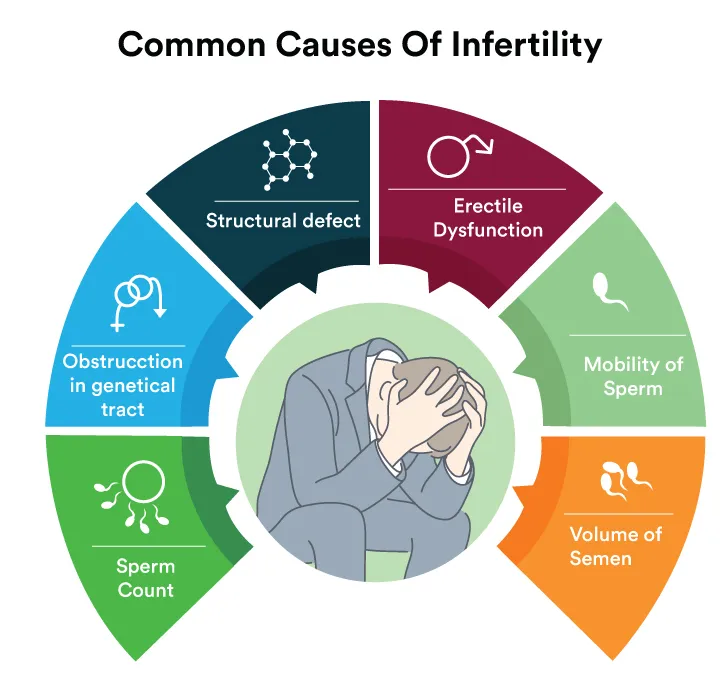What is Male Infertility?
Male infertility is diagnosed when a man is unable to produce mature and functional sperm capable of fertilizing a woman’s egg. Typically, infertility is considered when a couple has been actively trying to conceive for at least one year without success, despite regular, unprotected intercourse. Studies suggest that nearly 40% of infertility cases are linked to male reproductive health.
Several factors contribute to male infertility, including age, hormonal imbalances, genetic conditions, low sperm count, and poor sperm motility. The male reproductive system is responsible for sperm production and transport. During ejaculation, sperm mix with fluids from the prostate and seminal vesicles to form semen. This semen travels through the urethra and is released from the penis into the female reproductive tract. Fertilization occurs if the sperm successfully reach and penetrate the egg. When sperm quality is compromised, conception becomes difficult.
 Ahmedabad Top Rated IVF Center
Ahmedabad Top Rated IVF Center








